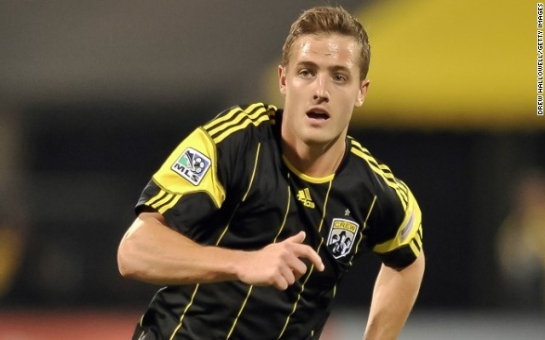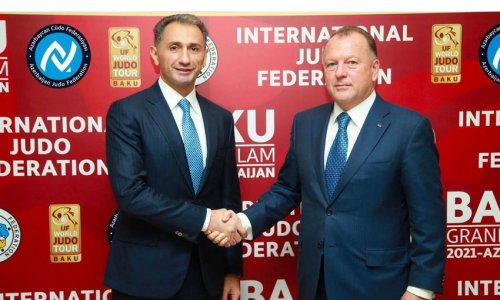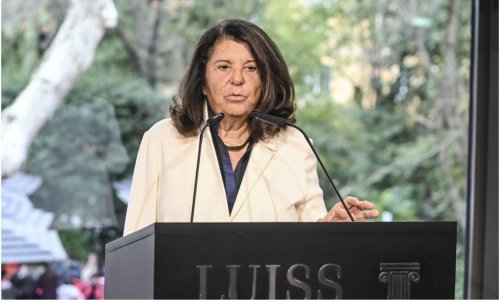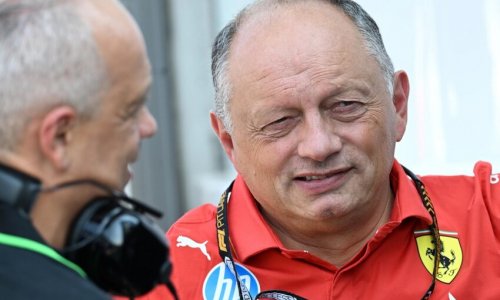Follow us !
Does football take homophobia seriously?
Sport
16:35 | 11.01.2014

Does football take homophobia seriously?
The chanting in the stand starts: “Does your boyfriend know you’re here?”There are a few laughs, not much else. It’s all been heard before.“Stand up, ‘cos you can’t sit down.”Yes, we’ve heard that one too.“Town full of faggots, you’re just a town full of faggots.”It’s not funny.But it’s hardly a surprise is it? When the governing body of the global game awards the World Cup to a country which prohibits homosexuality, as FIFA has done with Qatar for 2022, then it is time to ask: Is anybody taking homophobia in football seriously?FIFA president Sepp Blatter, after all, had to apologize after saying that gay people traveling to Qatar should "refrain from sexual activities." It is a problem which affects the very top and very bottom of the game – from those playing in the park at amateur level, where the abuse can be horrific, to the very elite we watch each and every week.During my time reporting for national newspapers, I’ve been fortunate enough to cover Brighton & Hove Albion – one of the most impressive community clubs in English football.Brighton, which plays in the second division, boasts a large gay, lesbian and transgender following, of which the city is rightly proud.According to a report issued last year by the Gay Football Supporters’ Network and the Brighton & Hove Albion Supporters’ Club, the level of homophobic abuse aimed at the team’s fans is beyond vitriolic.The report says Brighton fans suffered abuse by at least 72% of opponents it faced last season. Away games were particularly hostile, with its fans reportedly abused in 70% of fixtures, while the overall level of abuse for the entire season was 57%.Brighton supporters have embraced their own community – they are proud of their city and what it represents: it is a beacon for those who yearn to be involved in sport and who feel free to express themselves.Not all of those within football are as liberal.While at CNN, I’ve written a number of pieces on gay sports stars, their stories, their struggles and their fight for equality and acceptance.The feedback, on the whole, has been overwhelmingly positive, especially on social media and yet there is always a small, but vociferous cluster of bigots, who delight in "trolling" and registering some of the most abhorrent homophobic abuse I’ve ever read.The comments are not worthy of repetition - they smack of ignorance and a bygone age.Yet there is hope, if this past week is anything to by. When former Germany midfielder Thomas Hitzlsperger revealed he is gay, it was met with a tidal wave of love and goodwill.American footballer Robbie Rogers, who came out in February 2013, has enjoyed a similar experience. Although he immediately retired from football following the announcement, he returned to action three months later with the Los Angeles Galaxy.“The initial reaction that I saw was just very supportive,” Rogers told CNN. “I was surprised by the number of people that reached out. You know, I thought it would just be like some media here and there or some negative, some positive and that would be it and then people would get over it, but it’s just been, especially when I was in London, it was huge.”Hitzlsperger, who played 52 times for Germany, is the most high-profile football player to have come out but he only did so following his retirement.It is a fact which rankles with football fans – why do players feel unable to come out while remaining in the game?This is hardly a new phenomenon – it stretches back to the 1980s, as illustrated by the story of Marcus Urban, a German who was forced to give up football to live as a free, gay man."I realized that if I became a professional footballer, I would suffer as a man. I chose freedom over a constructed prison,” Urban told CNN last May."Talent is not enough. You need the will, physical fitness, good luck and a tough mentality. But what if you hide 24 hours a day because you are gay?"The fear and pain robbed me of my energy because I was constantly thinking of what to say, how to act so people might think I was heterosexual."Former England and Chelsea player Graeme Le Saux, who is not gay, suffered horrific homophobic abuse from fellow professionals just because he was different – educated, more reserved and preferred to read the Guardian rather than glance at topless women inside a tabloid.His 2006 autobiography, which publicly names and shames the alleged guilty culprits, is a hard-hitting, honest and ultimately depressing tale of how the "Beautiful Game" deals with homosexuality.Football has to take responsibility. It is churlish to claim that fans are the problem – I’ve seen enough sensible and encouraging support from the general public to know that.It is up to FIFA and the associations of each country to clamp down on homophobic abuse in the way they do on racism, even if those sanctions appear laughable at times.We should not be living in a society where people are forced to repress their sexuality for fear of being lambasted and made to feel inferior.Gay, straight, black, white, Christian, Jewish, Muslim or Hindu – it doesn’t matter. We are all people, we all want to enjoy the game we love and we all have the right to do so.(CNN)ANN.Az










